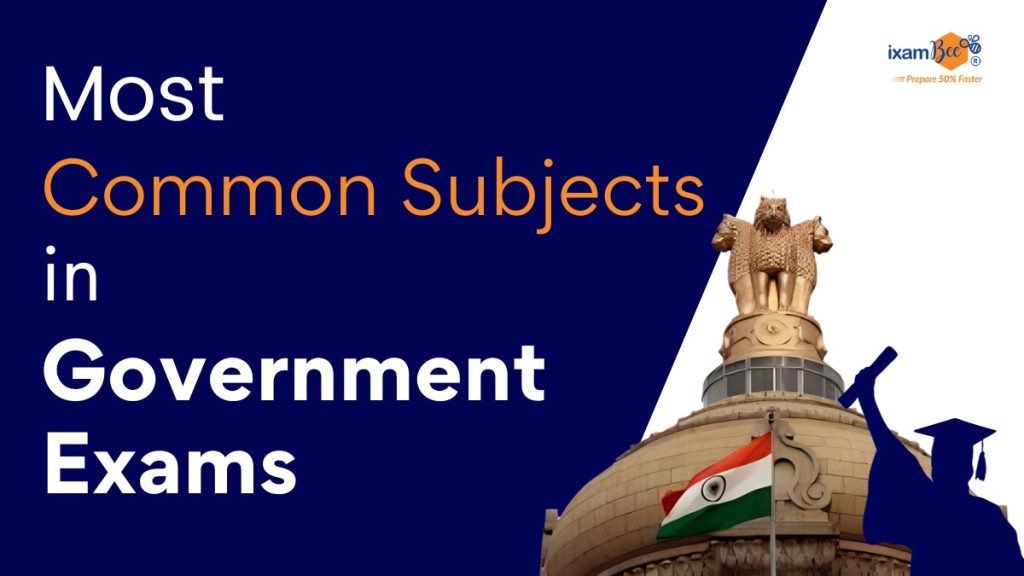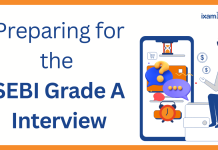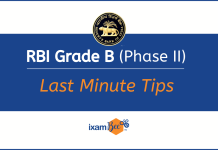Being extremely competitive, thousands fight for a few places in government departments every year. Such exams pose a requirement of fair-level knowledge and sophistication in handling an array of subjects effectively. Syllabi may vary from each other considering the nature of the exam, but there can be common issues that feature in multiple government exam patterns.

In this blog, we will cover the most common subjects found in government exams and provide some essential tips to ace them.
General Awareness
General Awareness is a widely required subject that evaluates the knowledge of a candidate regarding current affairs, history, geography, science, politics, and other connected areas. It is an integral part of almost all government exams, such as UPSC Civil Services, SSC CGL, IBPS PO, State PSC, etc. Here are some tips that would make you master General Awareness subject:
- Keep track of the current news on Beepedia and international newspapers, news apps, and websites. This way, you are sure to be aware of most of the significant happenings across the world and hence score higher in this subject.
- Follow the most reliable sources of information and check the authenticity of the information before using it. This is necessary because there is a lot of false information being spread across social media and other sites.
- Read through magazines and books that cover almost all topics under history, geography, and culture to understand the underlying concepts.
- Attempt online quizzes and mock tests in regular intervals so that knowledge gained is improved by better time management skills.
Quantitative Aptitude
Quantitative Aptitude assesses an individual’s ability with numbers and arithmetic operations. It is a critical component of exams such as SSC CGL, RBI Grade B, IBPS PO, SBI PO, and Railways exams. The following tips will help you excel in the Quantitative Aptitude section:
- improving your mathematics conceptual foundation while practicing the concepts and formulas. For the allover practice of basic concepts, keep practicing Algebra, Geometry, and Arithmetic until you get into their depth.
- Regular practice of a large number of problems in mathematics. This would lead to new shortcuts and techniques in solving the problem quickly.
- Emphasis on time management for the problem in order to make it more efficient. Learn to calculate fast while not losing precision.
- Learn short cuts and tricks for solving difficult calculations quickly. It would save much time and will lead to scoring better.
Reasoning Ability
Reasoning Ability will check an individual’s logical thinking, decision making, and solving of problems. This section is an essential part of SSC CGL, Bank PO, and other police services examinations. The tips below will surely guide you for scoring good in the Reasoning Ability section.
- Know all the various types of questions like logical reasoning, coding-decoding, series completion, and puzzles. You would then know that question and easily solve it as per your skills.
- Regular practice helps you improve analytical and problem-solving skills. Try to make an almost constant habit of solving different kinds of reasoning problems so that you will improve your skills.
- Divide the complex problems into smaller parts. This may give you a step to understand and identify the problem effectively, which could potentially save you a lot of time.
- Learn techniques to save time while solving the reasoning questions in an accurate manner. This is because the time to complete the examination is only limited.
English Language
English Language tests the applicant’s knowledge about the English language, such as grammar, vocabulary, reading and writing skills. It is significant in SSC CGL, IBPS PO, SBI PO, and UPSC Civil Services Exams. Follow these tips for better performance in the English Language section:
- Read English newspapers, magazines, and books to build a habit that improves vocabulary and comprehension. This will also enhance your reading speed and accuracy.
- Brush up on grammar rules and practice solving exercises for sentence correction and error detection. This will help you identify mistakes and improve your language skills.
- Solve previous year’s question papers to get accustomed to the pattern of the exam and the types of questions that are asked. This will give you a sense of how much weightage is given to different topics and to what extent the question paper will be challenging.
- Practice essay, letter, and precis writing. This helps in improving one’s writing skills, not to forget managing time well during the exam.
Computer Knowledge
Computer Knowledge is a basic knowledge of computers, hardware, software, internet, and information technology. It is a part of most exams, such as IBPS PO, SSC CGL, and State PSC exams. The following tips will help you ace the Computer Knowledge section:
- Familiarize yourself with the basic concepts of computers, including hardware components, operating systems, and software applications. This can help you answer basic computer-related questions.
- Always updated on technology, as well as the newest and most technical jargon involved with computers. In the beginning, ensure knowledge in newly evolved technology areas: Blockchain, Artificial Intelligence, Cyber Security, and other areas. Use sample paper, and Mock test for gaining expertise on knowledge in computers through practicing such exercises for knowing how one will manage answering types in exams.
- Learn keyboard shortcuts and basic functions of essential software applications such as Microsoft Word, Excel, and PowerPoint. Knowing these will save time to work with ease on a computer.
Professional Knowledge
Professional Knowledge is the subject that assesses the knowledge and understanding of an individual of his or her respective field. It is an important subject in exams like IBPS SO, SSC JE, and State PSC exams for various technical and non-technical posts. Some tips to score well in the Professional Knowledge section are as follows:
- Understand the core concepts and fundamentals of your respective field. Keep yourself updated with the latest trends and developments in your field.
- Refer to textbooks and study materials structured over the syllabus.
- Engage in further knowledge acquisition online course and webinars for better clarifications.
- Attempt model and mock tests designed only for your concerned field to make better problem and analytical skills for yourself.
Conclusion
By getting through with common topics which can come out in upcoming government exams 2024, by knowing how to perform all this while being aided with very necessary guidelines for achieving that particular milestone one has every probability to gain victory at any competitive government examinations and find good opportunities available to enter as one of the prestige postings to hold prestigious designations under governments.
ixamBee offers top-notch resources for SSC CGL and IBPS PO exam preparation, including SSC CGL mock tests, SSC CGL Tier 1 PYP, and comprehensive IBPS RRB PO & Clerk online courses. Our expert-designed IBPS PO Mains mock tests and online courses provide strategic insights for banking exams. With ixamBee’s targeted Banking online course approach, you’ll be fully equipped to ace your exams and secure success.
At ixamBee, we specialize in providing comprehensive online courses for government exams and online courses for government jobs. Our expertly designed courses for government jobs cater to a wide range of upcoming government exams. Whether you’re preparing for specific courses for government exams or seeking general guidance, ixamBee offers the resources like Beepedia previous year papers, SSC CGL, SSC CHSL, SSC MTS and other mock tests to succeed in exams like RBI Grade B, SEBI Grade A, NABARD Grade A, RRB NTPC, SSC MTS, NIACL Assistant, and more.
Also read:
Is the IBPS PO Exam Really Tough? Tips to Conquer It!
How to Improve English section for the SBI PO Exam
Top Benefits of Practicing SBI PO Mock Tests for the Upcoming Exam













